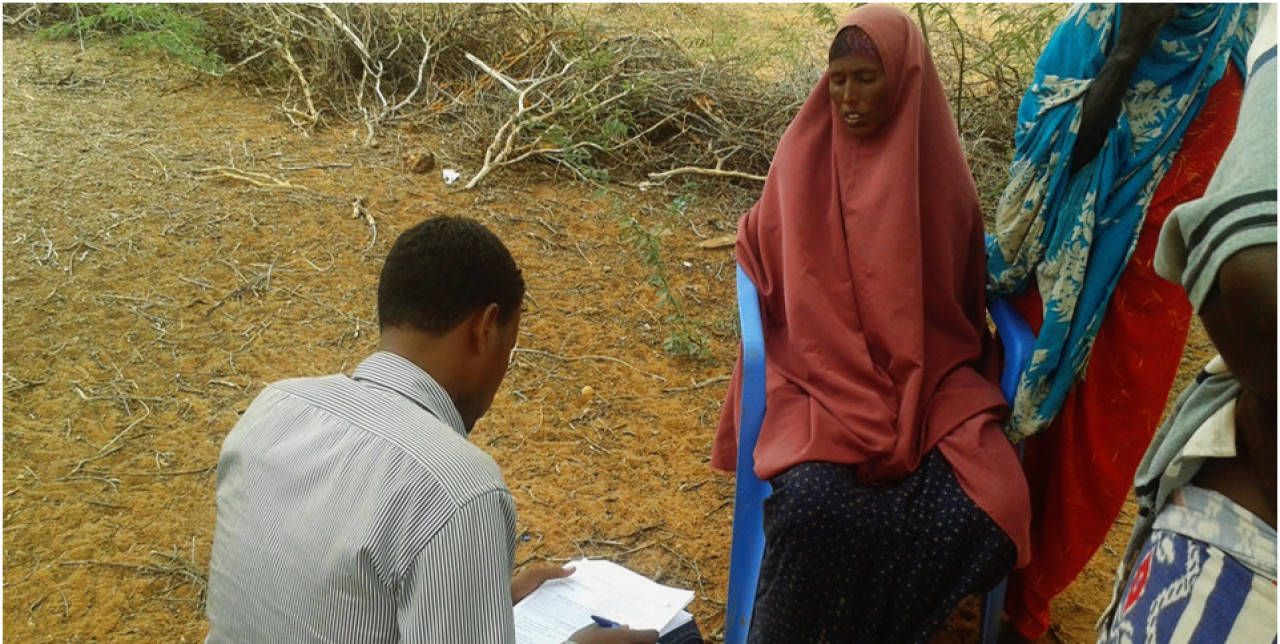22-06-2018 | di COOPI
Somalia: a sigh of relief for Dahabo
Gabaa is one of the villages in Luuq district, Somalia. It is now home to hundreds of pastoralist households who lost all or some of their livestock in remote and dry areas and have therefore moved here to search casual labor opportunities, to stay with their better off relatives and to access humanitarian aid.
Mrs. Dahabo Adhan Abdullahi, 34, lost 7 camels and 55 shoats due to the lack of pasture and water and was left with just little livestock, therefore moving to Gabaa village with the hope of getting assistance so as to meet her day-to-day needs.
Luckily, Dahabo was able to meet the requirements to benefit from the EU Humanitarian Aid (ECHO)-funded project “Coordinated implementation of Cash Assistance to support Somali Households (CASH) affected by disaster” , carried out by COOPI. She was able to receive three rounds of cash transfers, animal treatment service for livestock and supply of emergency livestock feeds. She used the money received to pay off some of her debts, madrasa (school) fees for her children, and also purchased food from the local market. Dahabo is very grateful for the support received and has thanked both COOPI and ECHO for restoring her livelihood and hopes, saying:
«My family didn’t depend on external help before. We had income from our livestock and we used it to purchase food items, water, household items and to pay for the education of for my children. I came to Gabaa village last year in August with few of my remaining livestock, whose condition was deteriorating further every day. When COOPI was targeting and registering beneficiaries in Gabaa village, they called for a public meeting with the community and informed them about the ECHO project details such as the duration, selection and targeting criteria for households, project activities, entitlements and the management of requests. I was lucky to be selected and to benefit from the project. Since March of this year, COOPI has supported me and my family with three rounds of unconditional cash transfer, has treated my livestock and also provided me with two rounds of fodder for livestock as feeds».
Dahabo also adds, very happily:
«Now, I will use the knowledge gained from the Early Warning, Early Action and Contingency planning training. It is wise for a pastoralist to sell some of his/her livestock during hard times so that he or she can use the money to feed and treat the remaining livestock. If that option fails, he or she will lose all their livestock».




 Somalia
Somalia